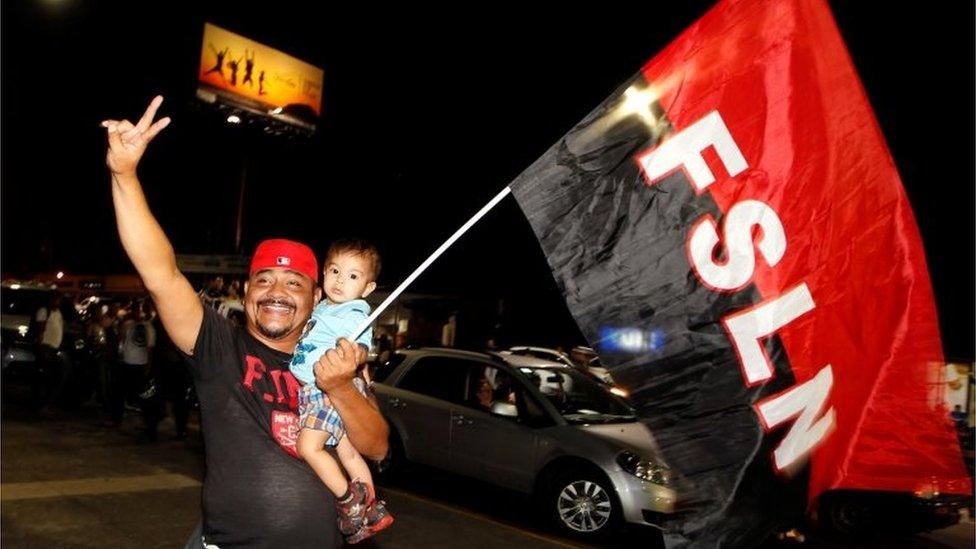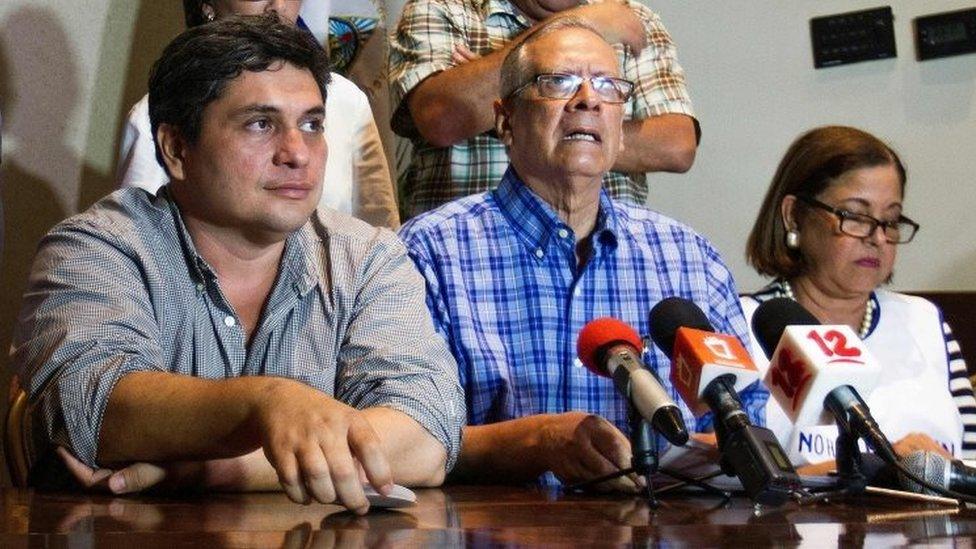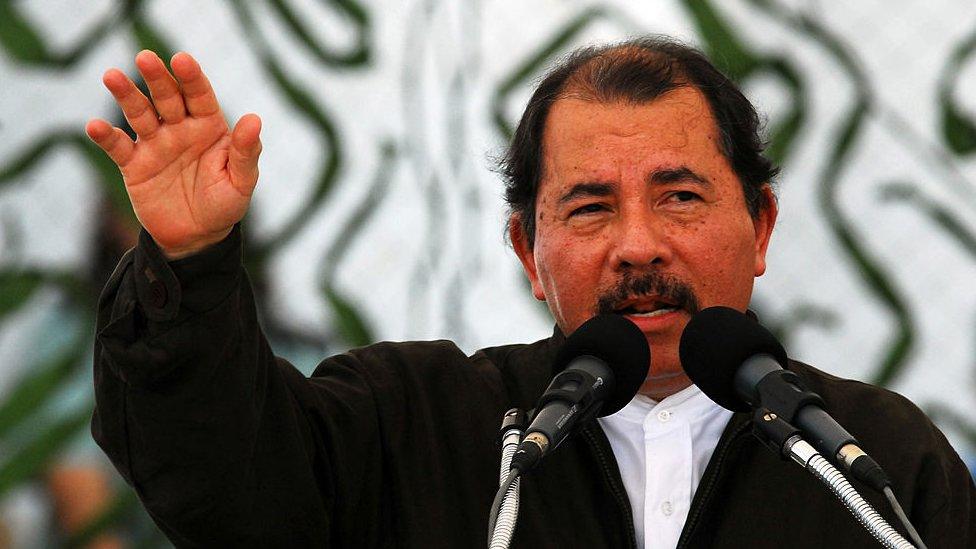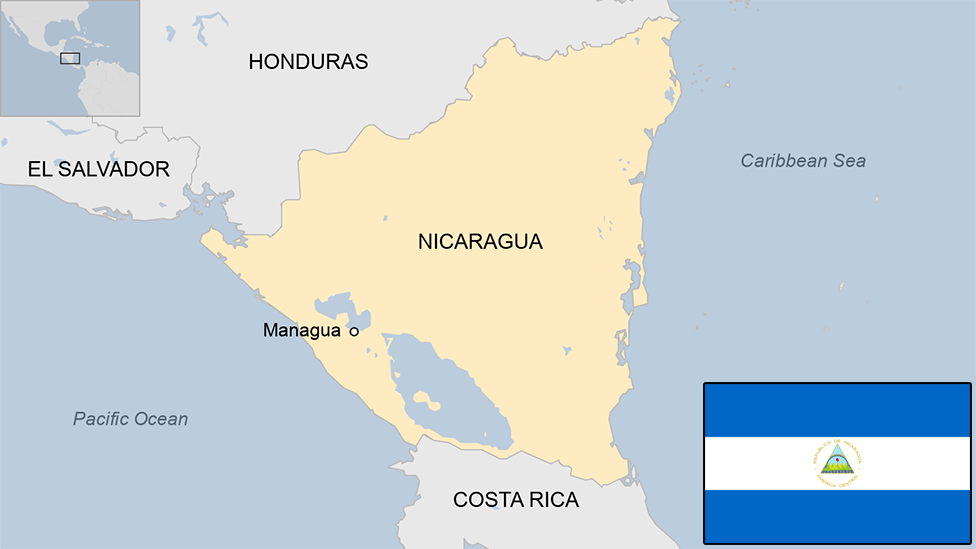Nicaragua leader Daniel Ortega wins third consecutive term
- Published

Supporters of Mr Ortega's FSLN party celebrated the result
Nicaraguan President Daniel Ortega has won a third consecutive term in office.
With two-thirds of the votes counted, the left-wing leader had secured an irreversible lead with 72%, election officials said.
His closest rival, centre-right candidate Maximino Rodriguez, only had 14.2% of the vote.
Mr Ortega had been widely expected to win both due to the popularity of his social programmes and because he faced no obvious political challenger.
A former left-wing rebel, Mr Ortega has led Nicaragua through a period of economic stability which has made him popular with Nicaragua's business sector and foreign investors.

Who is Daniel Ortega?


Daniel Ortega will now start a fourth term as president
Born in 1946, the son of a shoemaker
Joined the Sandinista National Liberation Front (FSLN) as a teenager
1984: Elected president
2006: Wins his second presidential election
2011: Wins a third term
2016: Wins a fourth presidential election, securing his third consecutive term in office

Supporters of Mr Ortega took to the streets to celebrate his victory.
But even before the first results were announced, members of the opposition coalition Broad Front for Democracy (FAD) called the elections a "farce",

The Broad Front for Democracy said the elections had been manipulated by Mr Ortega
The FAD, which had urged voters to boycott the election, alleged that more than 70% had abstained from voting.
They were contradicted by the electoral authorities which put voter participation at 65.8%.
International observers were not allowed to monitor the vote.
Mr Ortega's running mate was his wife, Rosario Murillo, who now looks set to become vice-president.
Analysts say that Ms Murillo already shares decision-making with Mr Ortega and could become president if her 70-year-old husband were to bow out.

Ortega's victory was no surprise - Katy Watson, BBC News, Central America

Daniel Ortega's FSLN party continues to be popular
The vote was seen as the most one-sided election in Nicaragua since the overthrow of dictator Anastasio Somoza in 1979 - a process that Mr Ortega himself was involved in.
But Nicaragua is sharply divided over the 70-year-old former guerrilla.
Many feel that the elections were a farce, that with this, his third consecutive term, there is growing autocracy in the country and the role of his wife as running-mate is too much of a family affair.
The fact remains, though, that he was the most popular candidate by far.
Overseeing Nicaragua's stable economic growth and the lack of violence compared to the problems of its neighbours El Salvador and Honduras in recent years have cemented him as the best option for many Nicaraguans.

Nicaragua's economy has grown at double the Latin American average, but the country still needs to attract more foreign investment.
A $50bn (£40bn) plan to build an interoceanic canal across Nicaragua with Chinese investment gained international attention, but there are serious doubts over whether it will ever be built.
The country has been able to avoid the sky-high murder rates of some of its Central American neighbours but it also faces the ever pervasive threat of drug-trafficking.
- Published5 November 2016

- Published31 December 2024
